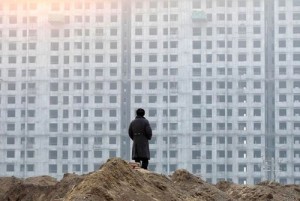 China’s land mass is big. The quantity of moral nuances in its cultures and subcultures are bigger. Some societal observers argue that the dating and marital habits of younger Chinese are very similar to the United States or western cultures.
China’s land mass is big. The quantity of moral nuances in its cultures and subcultures are bigger. Some societal observers argue that the dating and marital habits of younger Chinese are very similar to the United States or western cultures.
There is an interesting social critique in an article written in China Today. It presented the phenomenon of increases in divorce rates among Chinese. The increase was not blamed on changes in morality or shifts in cultural self-perceptions, rather on simple economics. The rise in the numbers of marital partitions is dramatic. The increase in divorces over the last year has become steady. In a society led by a government that mandates in obscurity, this revelation is surprising.
Adherence to marital or dating relationships varies and the reasons behind the scores reflected in the number of divorces alter with demographics. A couples concepts of personal economics change when surveyed in Beijing as oppose to smaller towns and villages as Nantong or Haimen. China Beijing Civil Affairs Bureau imposed a new real estate tax code. It seems to have affected the life span of Chinese marriages.
In their attempts to avoid paying a heightened tax rate many couples have chosen to opt out by divorcing. Within the new taxing structure, a couple owning two homes may benefit from the sale of one home placed in a spouse’s name. By divorcing and selling the property, the proceeds are tax-exempt. After completion of the transaction, the couple may remarry later. Who is to say that the marriage split was of a fiscal nature rather than the complications of a failed marriage? The spike in divorce rates happened shortly after the new tax laws.
“Even if a couple decides to get a divorce to evade taxes, they say they fell out of love and their personalities are not suitable for each other,” Li said.
Right or wrong, the “Five regulations of the domestic real estate market” was fomented not to address any moral clause. Rather it is a tool to cool down an overheated housing market. There is the obligatory outcry from some Chinese governance over societal norms. They say that this tax imposition harms the fabric of the basic social contract between man and woman. Some warn women that this may be used as a loophole for men who wish a permanent solution to an unwanted marriage. A scare tactic perhaps, but clearly divorce in China is on the rise.
The tax law is clearly not the only reason a Chinese couple may opt out of marriage but it has certainly demonstrated a contributing factor in the rise of divorce rates. There is an uptick of 41 percent over this same period in 2012. Thanks to new tax regulations Chinese divorce is the new black.






